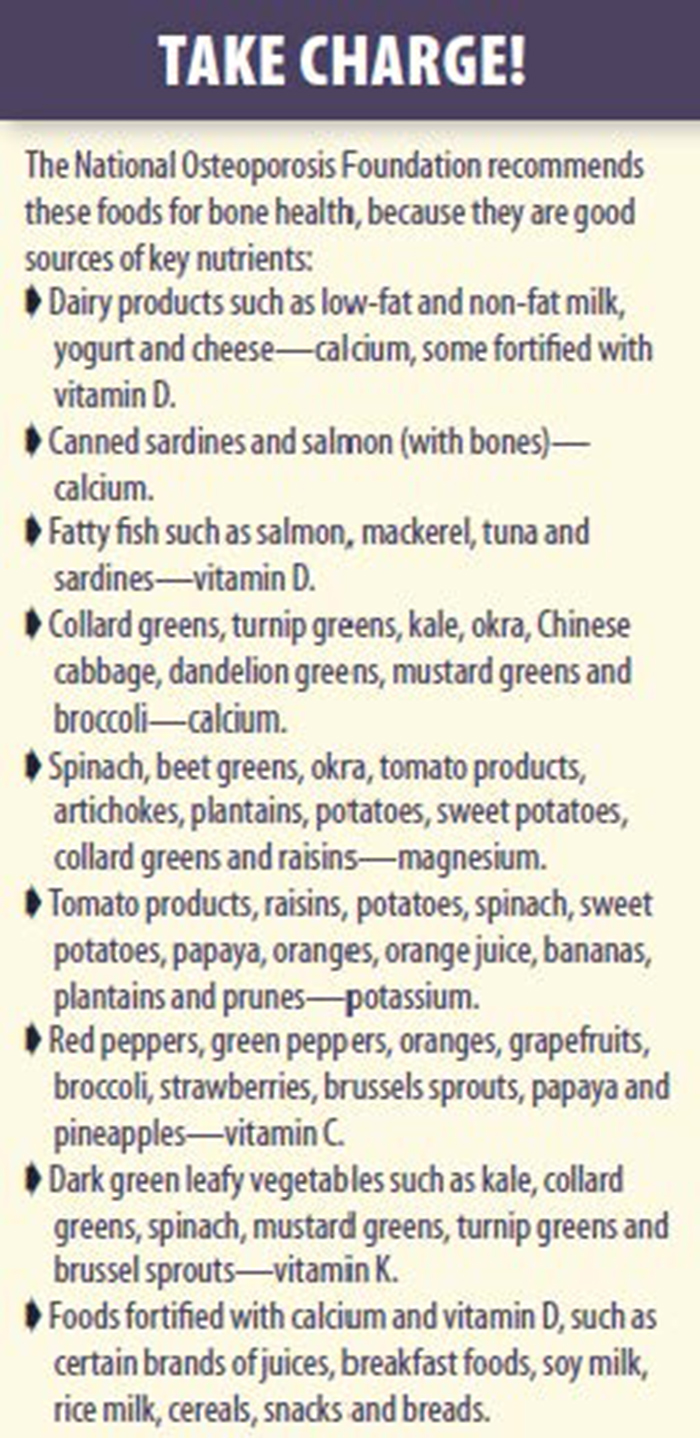You might not think that eating smart for your heart would have anything to do with also protecting your bones. But a new study finds that following the American Heart Associations diet and lifestyle recommendations is also associated with better bone health.

For many years, nutrition and bone research focused mainly on calcium and vitamin D, says senior author Katherine L. Tucker, PhD, a professor at the University of Massachusetts-Lowell and adjunct professor at Tufts Friedman School. We are now learning that many foods and nutrients affect bone mineral density and fracture risk. Fortunately, these overlap substantially with those that protect against heart disease.
HEART-SMART SCORE: Noting that cardiovascular disease and osteoporosis share common mechanisms in the body, Tucker and colleagues sought to test whether what was good for one might also be effective in preventing the other. They developed a score based on adherence to the 2006 American Heart Association Diet and Lifestyle Recommendations. (To read about the latest update to those recommendations, see this issues Special Report.) They then applied that measure to 933 Puerto Ricans, ages 47 to 79, who were also tested for bone mineral density.
The results showed a clear link between heart-healthy living and bone health. For every five-point increase in the adherence score, the odds for osteoporosis or osteopenia in the hip dropped 17%. Risk in other bone areas dropped from 9% to 14% with each incremental increase in the adherence score. The findings were published in the American Journal of Clinical Nutrition.

SIMILAR STEPS: Taking a closer look at recommendations for avoiding heart disease and preventing osteoporosis, its perhaps not so surprising that similar diet and lifestyle choices might benefit both. The 2006 Heart Association guidelines, used to formulate the studys adherence score, include:
– Balance caloric intake and physical activity to achieve and maintain a healthy body weight.
– Consume a diet rich in vegetables and fruits.
– Choose whole-grain, high-fiber foods.
– Consume fish, especially oily fish, at least twice a week.
– Limit intake of saturated fat, trans fat and dietary cholesterol.
– Choose and prepare foods with little or no salt.
– If you consume alcohol, do so in moderation.
The guidelines also recommend engaging in regular physical activity and avoiding smoking.
Similarly, the National Osteoporosis Foundation
– Get enough calcium and vitamin D and eat a well-balanced diet.
– Engage in regular exercise.
– Eat foods that are good for bone health, such as fruits and vegetables.
– Avoid smoking and limit alcohol to two to three drinks per day.
























